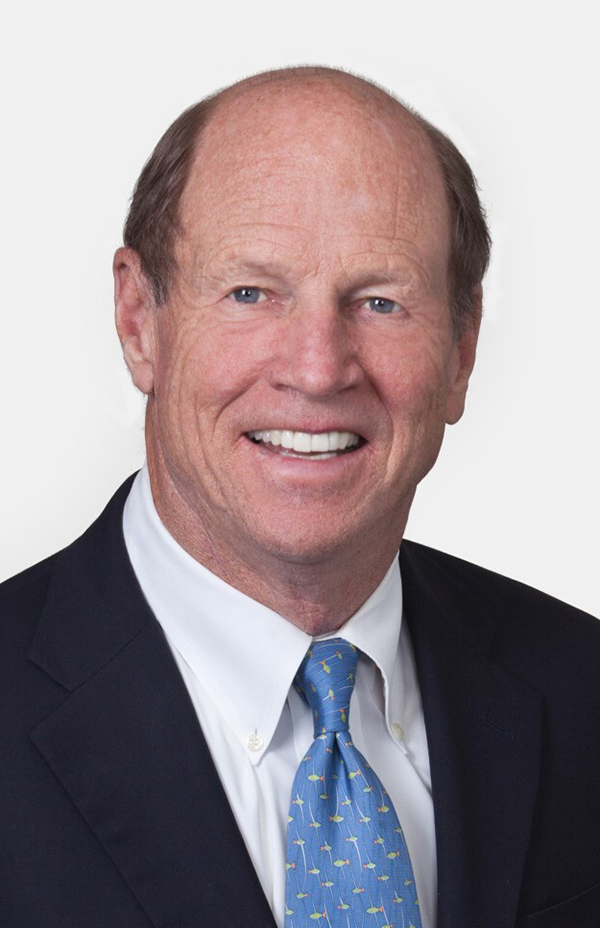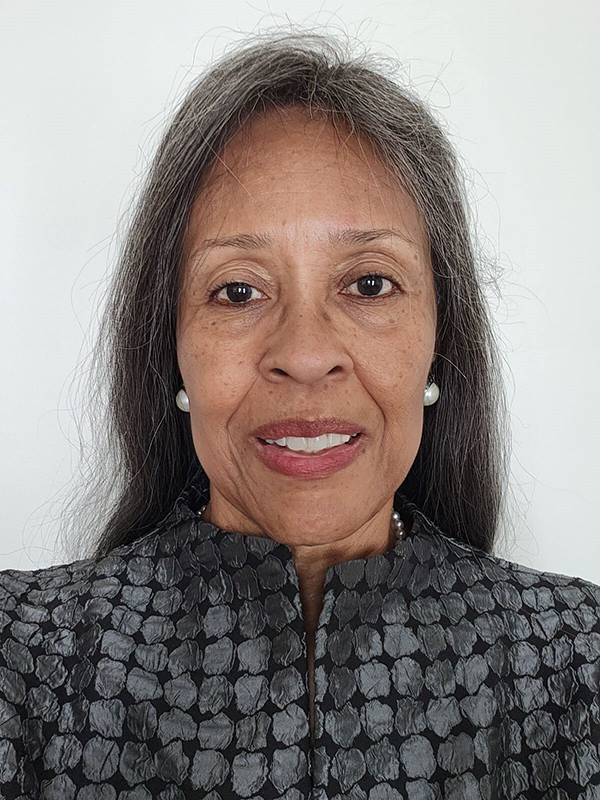Wanted: Lawyers to help with this year’s election

The ABA is mobilizing members to protect the right to vote ahead of this fall’s presidential election. The Task Force for American Democracy, formed by immediate-past ABA President Mary Smith last year, is on the front lines. (Image from Shutterstock)
The ABA is mobilizing members to protect the right to vote ahead of this fall’s presidential election.
The Task Force for American Democracy, formed by immediate-past ABA President Mary Smith last year, is on the front lines. In recent months, its members conducted a cross-country listening tour to discuss improving public trust in the electoral process. It also released an analysis outlining current threats to elections and ways lawyers and state and local bar associations can help protect the system.
This list includes voting and encouraging family, friends and colleagues to vote; volunteering as a poll worker or to answer voter questions before or during Election Day; and organizing programs on the rule of law, democracy and elections year-round.
 “Lawyers should be standing up because that’s our job,” Bill Ide says.
“Lawyers should be standing up because that’s our job,” Bill Ide says.“We sign a pledge when we become lawyers that we will defend the Constitution and the rule of law,” says R. William “Bill” Ide, a past ABA president and vice chair of the task force. “Lawyers should be standing up because that’s our job. That’s what we’re supposed to do.”
Other ABA groups also are putting out the call. They are promoting and connecting members to a myriad of opportunities to get involved before, during and beyond Election Day.
Working the polls
For the past several years, the Standing Committee on Election Law has asked lawyers and other legal professionals to become poll workers.
As part of its Poll Worker Esq. initiative, the ABA partners with the National Association of Secretaries of State and National Association of State Election Directors to connect members with the resources they need to volunteer in these roles in their communities. It also encourages state and local bars to recruit their members to help with the upcoming election.
 “Lawyers are good at conflict management,” Jason Kaune says.
“Lawyers are good at conflict management,” Jason Kaune says.Lawyers are uniquely suited to serve as poll workers, says Jason Kaune, the chair of the Standing Committee on Election Law. He explains that poll workers were already required to follow specific rules and regulations to administer elections fairly and effectively. And now, in many states, they also must understand laws that have evolved significantly after recent election cycles.
“Getting lawyers in there volunteering is kind of a no-brainer—and not election lawyers, because we’re all working that day,” says Kaune, a partner and head of the political law section at Nielsen Merksamer Parrinello Gross & Leoni in the San Francisco Bay area. “If someone walks in with a question that needs to be answered, a lawyer can both interpret and relay the law.
“They might also deal with contention, and lawyers are good at conflict management. If someone comes in headstrong, a lawyer can be comfortable handling the situation.”
Eight states—Iowa, Ohio, Indiana, Florida, Virginia, South Carolina, Kentucky and Nebraska—now offer continuing legal education credit for election work training and service. Kaune adds that lawyers also may receive pro bono hours for their service.
Educating the public
The Section of State and Local Government Law created its Defending Democracy initiative to bring attention to state and local election administrators.
 “We can talk about the mechanics, and we can do so in a way that helps create faith in the process,” Stephen Cobb says.
“We can talk about the mechanics, and we can do so in a way that helps create faith in the process,” Stephen Cobb says.Its goals include educating the public about the important role of election workers and increasing transparency around elections. As part of its work, the section conducts tours of local election facilities to help lawyers better understand the voting process. These tours were offered during ABA meetings in Chicago; Louisville, Kentucky; and Denver.
The Section of State and Local Government Law selected Stephen Cobb, a member at Cozen O’Connor in Washington, D.C., as the Defending Democracy initiative’s inaugural democracy fellow. In keeping with the initiative’s focus on education, Cobb has led a series of seminars to address threats to democracy and the part lawyers can play in possible solutions.
One thing lawyers can do is take the lead on civics education, says Cobb, who spoke with lawyers and law students at Howard University School of Law, UCLA School of Law and Elisabeth Haub School of Law at Pace University.
 Stephen Cobb (center) appeared on a panel to discuss voting rights and election volunteering in May at the Elisabeth Haub School of Law at Pace University.
Stephen Cobb (center) appeared on a panel to discuss voting rights and election volunteering in May at the Elisabeth Haub School of Law at Pace University.“We as lawyers have specialized understanding of how our different systems work,” Cobb says. “And so first, at a very baseline level, it is making sure you’re up to speed in how the systems work in your community and in your state and nationally.
“And then when you’re having those conversations around the kitchen table, it’s not about politics. It’s not about where you fall on the political spectrum. We can talk about the mechanics, and we can do so in a way that helps create faith in the process.”
Cobb agrees lawyers can contribute in many other ways, including by serving as poll workers and volunteering with organizations that focus on voter protection issues.
Defending the right to vote
Through its Perfecting Democracy initiative, the Section of Civil Rights and Social Justice aims to recruit lawyers and law students who are interested in assisting nonpartisan organizations in their work to protect elections.
Depending on their interests and location, volunteers are matched with the Lawyers’ Committee for Civil Rights Under Law, Common Cause or several other national, state and local organizations. They can help monitor polls in person but also provide voters with election support and track online disinformation from home. Other election-related opportunities include voting rights litigation and work on redistricting.
 “Post-election is important, and state and local midterm elections are critical,” Dr. Cynthia Swann says.
“Post-election is important, and state and local midterm elections are critical,” Dr. Cynthia Swann says.Volunteers don’t need to be election experts and will receive any necessary training, emphasizes Dr. Cynthia Swann, the chair of the section’s Voting Rights and Fair Elections Task Force.
“What’s most important is their presence and ensuring these nonpartisan efforts extend to individuals who are being denied the right to vote or giving information to [voters] so they understand what their roles are in this democracy,” says Swann, the chief administrative officer at the Hip Hop Caucus, a national nonpartisan organization that encourages young people to engage in the democratic process.
Swann hopes lawyers and law students feel energized by this work and continue to volunteer.
“The general election is huge, and we’re gearing up for that, but post-election is important, and state and local midterm elections are critical,” she says. “That really is where a lot of the work happens—at the state and local levels.”
Protecting election officials
Earlier this year, the Young Lawyers Division launched a new Public Service and Civic Engagement initiative.
Like the Section of Civil Rights and Social Justice, one of its goals is to connect lawyers looking for a way to get involved in election-related work with various organizations looking for more people to volunteer.
 “I do think this presents a good opportunity for young lawyers to get involved and do pro bono work at a very local level,” Jose Castro says.
“I do think this presents a good opportunity for young lawyers to get involved and do pro bono work at a very local level,” Jose Castro says.“This is an important issue,” says Jose Castro, the civic engagement director for the Young Lawyers Division and a senior associate at Spencer Fane in Denver. “There are plenty of important issues out there, but I do think this presents a good opportunity for young lawyers to get involved and do pro bono work at a very local level.”
Specifically, the Young Lawyers Division encourages members to serve as election workers through Poll Worker, Esq. It also directs them to the Election Official Legal Defense Network, a project of the Center for Election Innovation & Research that provides pro bono counsel to election officials who have been threatened or harassed.
In the wake of the 2020 presidential election, the network has received “a consistent drumbeat of requests” from election officials in need of legal advice or assistance, says Jacob Kipp, the operations director and chief of staff of the Center for Election Innovation & Research.
In addition to helping election workers protect themselves and their families, the Election Official Legal Defense Network’s volunteers help navigate state laws that subject election workers to criminal and civil penalties for failing to comply with certain provisions.
“We are always looking for new attorneys to sign up, to join this network, because we never know where the next request is going to come from, and we never know exactly what it’s going to entail,” Kipp says. “We really need as robust a network as we possibly can have.”
Castro adds that the Young Lawyers Division encourages its members to also look for opportunities to get involved in the Task Force for American Democracy.
See also:
Safeguarding Elections: Decades of ABA advocacy has helped ensure access to the ballot box
Write a letter to the editor, share a story tip or update, or report an error.



